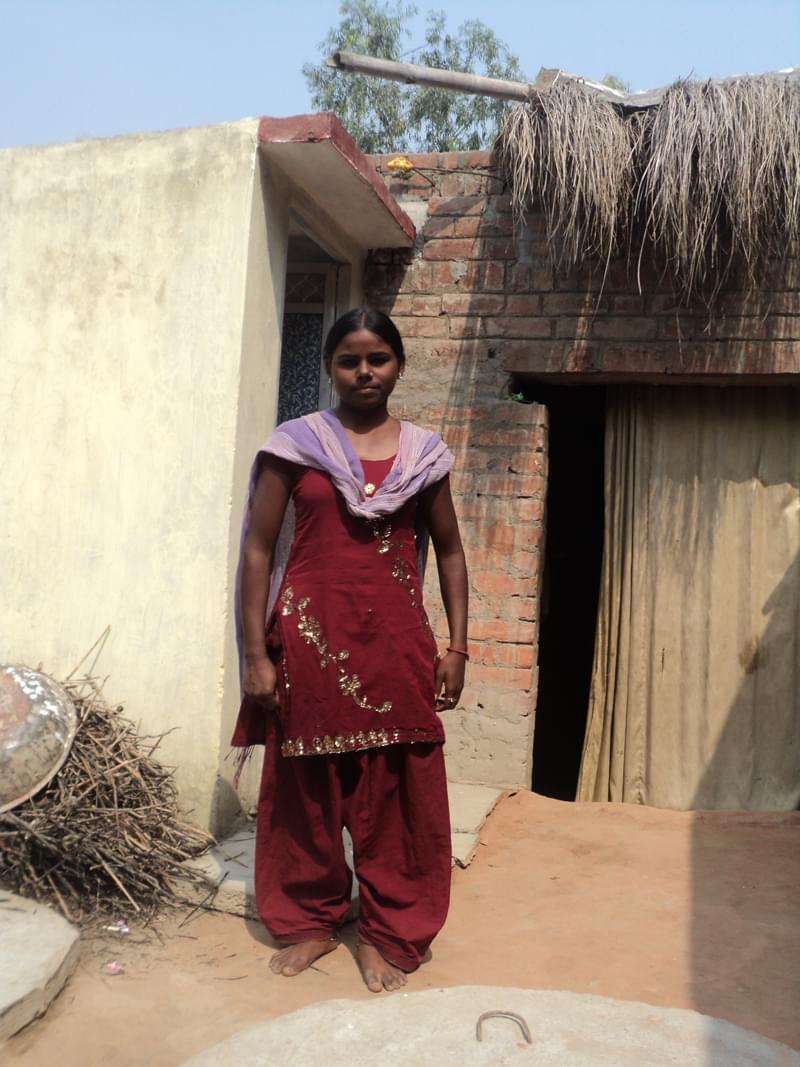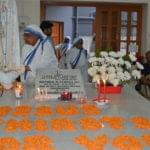Features
UP: Toilet Connections of the ‘No-Toilet’ Women in Fatehpur

Wee hours in remote villages in UP is unique with flurry of activities. Women across caste line flock together from their homes to attend to nature’s call before the first ray of the sun. A common practice for women who otherwise detest sharing water from the local tubewell, so deep being the caste divide, but this is one such daily chore that binds the community women together.
It is a daily toilet routine of the women who for generations have been sneaking in early hours of the day to the nearby paddy, pulses and onion gardens to ease out. They are not friends, neither relatives but the morning chores make these neighbors one. They look for each other, form a group and go out together, silently.
“That is because we are scared of going out alone. Though toilets are such necessity yet male members of the family would not waste money building toilets”, confesses Sita Devi of the Paswan community of Usraina West Village of Hasba block of Fatehpur district of central Uttar Pradesh, who is married for now twelve years and covers her face in a ghoonghat (veil) all the time. “I do understand but have no other option and have to go with all women like me. At least they are of help when there are criminals or snakes around”, she adds. It is a fixed time affair and no change in the habit is acceptable to the community.
Although the central government ‘Swatch Bharat Abhiyan’ the ambitious version of ‘Nirmal Bharat Abhiyan’ that provided individual toilets to people on their applications, promises to make all gram panchayats open defecation free (GPOD) in the next five years, women and children in these villages still continue with the age old set practice. Swatch Bharat proposes to cover all rural households with individual household latrines (IHHLs), cluster toilets, community toilets, school and anganwadi toilets and solid liquid waste management activities in all Gram Panchayats of India by 2019, a deadline set to mark the 150th birth anniversary of the father of the nation, Mahatma Gandhi. The mission intends to create enhanced demand and convergent action through various agencies working on stimulating habits of people by Information, Education, Communication (IEC) and Inter Personal Communication. The allocation of funds for building toilets have been increased from the earlier ten rupees to twelve thousand specifically to address issues of water availability, storing, hand washing and cleaning of toilets and building public private partnerships but social, educational and habitual activities stand as the ultimate hurdle.
“For generations women have together from these households called on each other to attend to their daily chores. Also it is like a daily routine that has to be finished at a certain hour. Lots need to be done before each one in my village is aware of their right to use toilets”, says Amba Devi a thirty six year old and only women to have finished her school before getting married some twenty years ago.
Amba stands taller than others in the village. First, because she came in from Mumbai and was educated than any other women in the locality and secondly she considers herself higher in the caste hierarchy. She is from the Chaurasia community who cultivate and sell betel leaves living in midst of the many other backward castes. If caste is not an issue in the locality then gender definitely is. Amba can use the newly built standalone toilet in her vicinity but only after the male members have finished. “That has been the age old practice and to defy it right away is impossible. Still women under the veils of their sarees cannot discuss toilet matters with the male members of the family”, Amba explains.“We could never get our daughters married with people from other castes. That is not our culture. Nor can we drink water from the same tubewell, but when it comes to toilet we have no other option and stand together with women of all communities”, she adds.
Morning thus binds the women community together and when nature calls. Women before male members of the family even wake up finish their chores as an age old exercise. The paswans, lodhs, mauryas, chaurasias, fakirs, muslims all women who could not otherwise become friends join hands in the morning for their own safety.
“The early mornings are scary. We cannot go alone. Also imagine what happens when a woman has her stomach upset or she is menstruating and needs to go to the field during the day. It is not permissible. We need toilets at home but we still do not know who will have the first entitlement. Also there is no water. Who would clean up the toilets”, questions that seem to be big concerns for the seventeen fifteen year old Sapna who goes to the local government girls school at Usraina east village. Her school some months back built their own toilet and she makes sure to use it before coming home every day.
Twenty six year old Babulal a volunteer from the paswaan community working on several government projects as local contact explains that the few toilets built there was just symbolism. “There are just too many people to use them. Also the sulabh style toilet where there is no supply of water is difficult to maintain. NGOs build toilets but again people do not want them built inside their homes. Land is a big factor. What is needed is the awareness for people. Many still consider going to the open as healthy practice”.
Several international NGOs like World Vision that is working to integrate the sanitation effort with the Swatch Bharat Abhiyan, have hired partners like Sulabh International to build toilets in remote villages. “Each toilet cost rupees 19100 for us and to increase community ownership we encouraged families to share the cost with 1000 rupees contribution. Still land entitlements, gender discrimination and age old practices are a concern, admits Maneeshee Kumar, program manager of World Vision working on the sanitation project that developed 164 toilets in the area this year.
The toilets built through public private partnership (PPP) model and the Central Government’s specific initiative are the sulabh style toilets with underground compartments. These compartments need to be used as compost after three four years and newer compartments will have to be built. With scarcity of water in the vicinity, maintenance of the few toilets is a big concern. Although the strategy of implementation of the Sanitation Program has given immense priority to behaviour change among communities and the proper usage of toilets are being ensured yet age old practices and beliefs are not easy to shed.
“It is a complex problem. Since toilets made are fewer, and water scarce and many do not have adequate land papers so as to apply for individual household toilets,” Puja another new bride in the village shyly confess. “Children anyways go to the open near the canal”.
The visible dirt also does not deter the women around. Some toilets are locked from outside displaying the level of power game in the villages. “The elders do lock them up so that children do not use them always. Also these days it has become habitual for men to use them first whereas women are continuing with their daily camaraderie with other women in the early hours’, Puja adds.
“Unless toilet rights are considered to be same as health rights, nothing much can be achieved. We need them as hospitals and health centers that make vaccination compulsory for infants. The habit has to change from early years”, Amba Devi the outspoken women of Usraina innovatively provides a solution.
